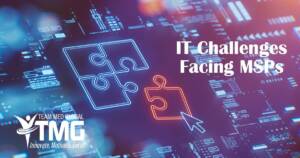 In the quiet corners of the healthcare industry, where the spotlight seldom shines, Medical Services Professionals (MSPs) are facing a growing burden. Dedicated MSPs are contending with challenges far removed from their core expertise. The rise of IT-related responsibilities has introduced unexpected obstacles, pushing MSPs to navigate uncharted territory.
In the quiet corners of the healthcare industry, where the spotlight seldom shines, Medical Services Professionals (MSPs) are facing a growing burden. Dedicated MSPs are contending with challenges far removed from their core expertise. The rise of IT-related responsibilities has introduced unexpected obstacles, pushing MSPs to navigate uncharted territory.
Clinical Informatics Training: A Daunting Responsibility
Among the most significant IT-related challenges MSPs face is the expectation to train healthcare practitioners on clinical informatics systems. These systems, essential for managing and streamlining patient care, are crucial to healthcare operations. However, the task of educating clinicians on these tools often falls to MSPs, despite their lack of specialized knowledge in this area.
For many MSPs, this responsibility is particularly daunting. While they are experts in credentialing and compliance, navigating the intricacies of clinical software is far from their core expertise. Yet, they are frequently expected to explain system functionalities, troubleshoot basic issues, and ensure that practitioners can use these tools effectively. This additional duty forces MSPs to balance their primary roles with the demands of a task for which they may not be adequately trained or supported.
Delays in IT Support: A Pressing Concern
The growing delay in IT support is adding significant strain on MSPs, largely due to staffing reductions in many healthcare organizations. With cost-cutting measures leading to layoffs, the remaining IT staff are stretched thin. As a result, MSPs often must submit help tickets to remote support systems rather than speaking directly with IT personnel, leading to slow response times and longer waits for technical assistance.
These delays can have serious implications for MSPs, who operate under tight deadlines and cannot afford to be sidelined by technical issues. The frustration of waiting for support, combined with the pressure to maintain productivity, creates a stressful environment where MSPs are left to navigate complex IT problems with minimal guidance.
Managing Multiple Platforms: The Challenge of System Overload
MSPs are also confronted with the challenge of managing multiple digital platforms. From credentialing software to provider enrollment databases, the tools at their disposal are numerous and often not designed to work seamlessly together. This lack of integration forces MSPs to juggle various systems, each with its own set of rules, interfaces, and idiosyncrasies.
The need to navigate between these disparate systems can be time-consuming and mentally taxing. MSPs must constantly shift gears, adapting to different workflows and data entry requirements. This technological fragmentation not only slows down their work but also increases the likelihood of errors, which can have significant consequences for compliance and credentialing processes.
The Burden of Continuous Learning: Keeping Up with Technological Change
Finally, the relentless pace of technological change presents an ongoing challenge for MSPs. As new software updates, tools, and systems are introduced, MSPs are expected to keep up with these developments while managing their existing workload. Continuous learning is essential, but it can be difficult to find the time and resources to stay current in an ever-evolving digital landscape.
The pressure to stay updated can lead to burnout, as MSPs struggle to balance the demands of their role with the need to learn and adapt to new technologies. This challenge is exacerbated by the lack of formal training opportunities tailored specifically to their needs, leaving MSPs to figure things out on their own or risk falling behind.
The IT challenges facing MSPs are multifaceted and growing in complexity. As they navigate this increasingly digital environment, the strain on their time, expertise, and resources continues to mount. These challenges underscore the need for a broader understanding of the pressures MSPs face and the critical role they play in maintaining the integrity of healthcare operations amidst a rapidly changing technological landscape.

